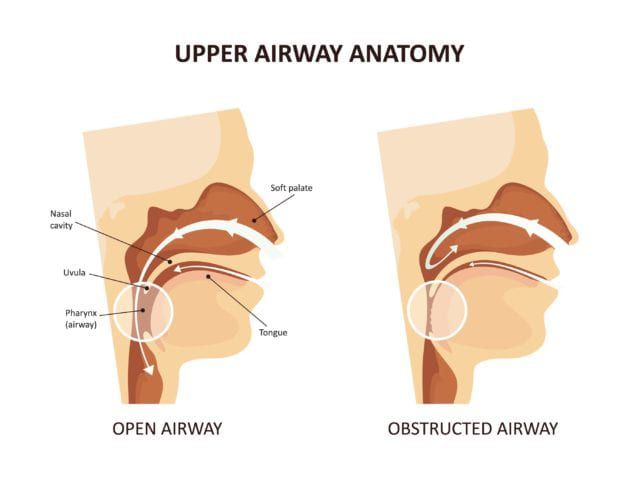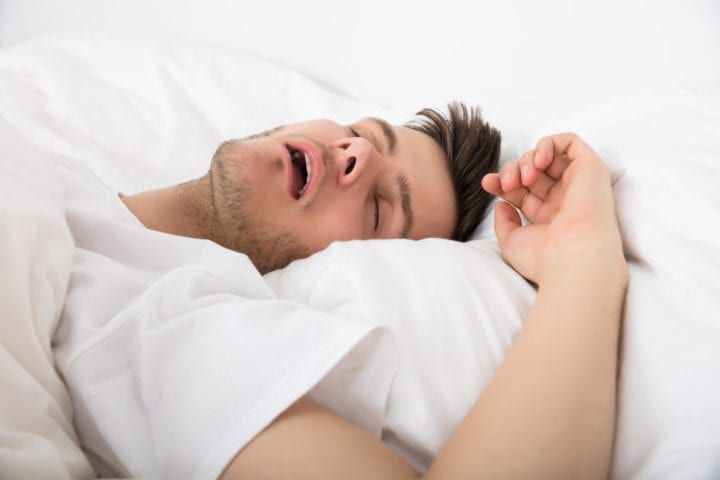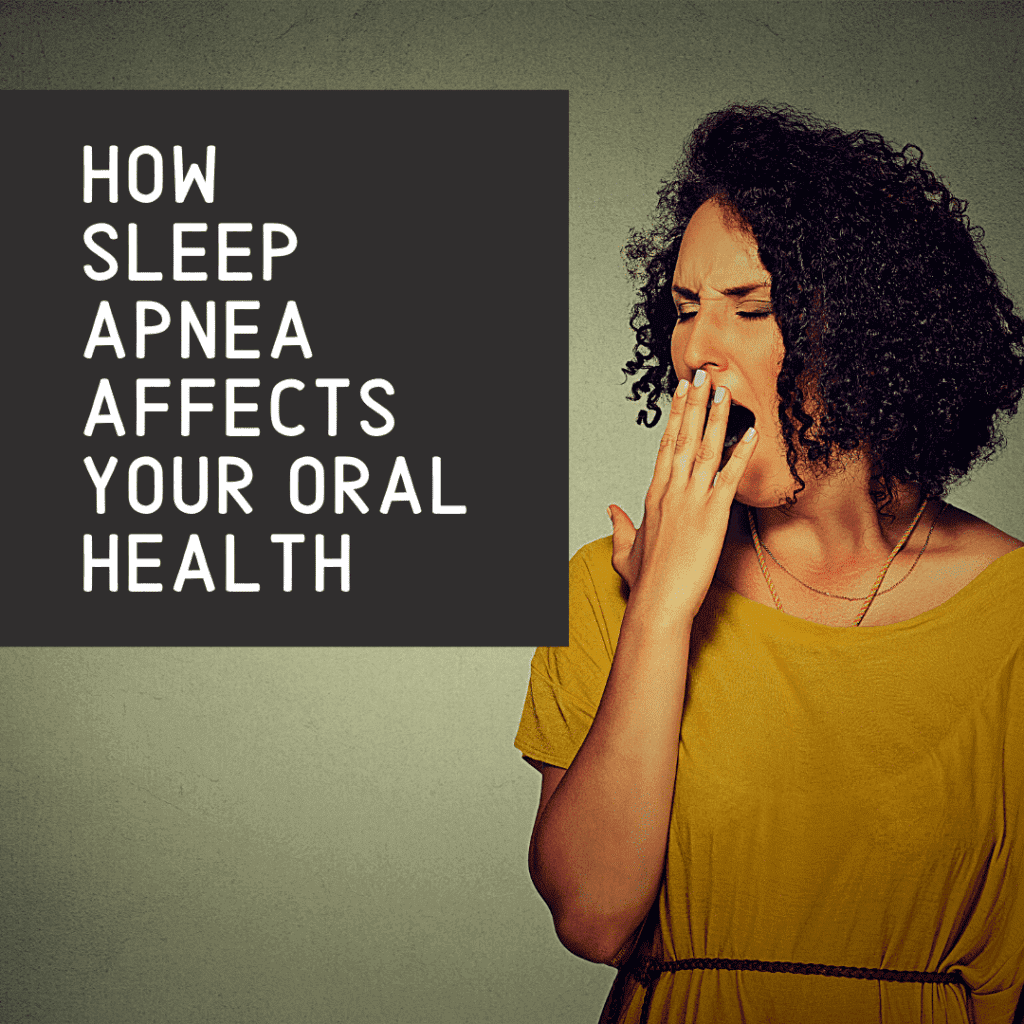Tooth decay and gum disease are two of the biggest threats to your oral health. In most cases, these dental issues are both the result of excess bacteria in the oral cavity. Tooth decay is caused by excess bacteria accumulating on the tooth enamel, while gum disease is the result of bacteria accumulating along the gum line. While bacteria certainly represents a threat to your oral health, it is not the only threat. In fact, certain conditions, such as sleep apnea, can have a negative effect on your oral health.

What is Sleep Apnea?
Sleep apnea is a disorder characterized by interruptions in natural breathing patterns due to the narrowing or collapse of the upper airway while sleeping. These pauses in breathing can last anywhere from a few seconds to a few minutes. There are three different types of sleep apnea, including:
- Obstructive sleep apnea (OSA): occurs due to a blockage in the airway
- Central sleep apnea: occurs when the brain fails to signal the muscles to breathe
- Complex sleep apnea: occurs as a mixture of the other two types
While about 22 million Americans currently have some form of sleep apnea, OSA is the most common type of sleep apnea, affecting about 80% of all sleep-disordered breathing cases. People with OSA generally experience daytime sleepiness and fatigue from nightly sleep interruptions. However, in addition to sleep disturbances, people with sleep apnea are also prone to certain oral health conditions.
How does sleep apnea affect oral health?
Unfortunately, sleep apnea affects more than just your sleep quality. In fact, sleep apnea has been linked to certain oral health conditions. In addition to significantly increasing your risk of tooth decay and gum disease, sleep apnea can increase the risk of:
Dry Mouth

OSA can cause your breathing to temporarily stop for a few seconds to a few minutes at a time. When this happens, your natural response is to gasp for more air. Even if you are not gasping for air, OSA also causes snoring. Both snoring and gasping for air require your mouth to be open while sleeping. In addition to drying out and irritating your throat, sleeping with your mouth open dries out the inside of your mouth. Since saliva production naturally drops at night, your mouth will likely remain on the drier side. Dry mouth allows bacteria to do more damage and increases the likelihood of tooth decay and gum disease. It is also responsible for bad breath.
Teeth Grinding
Another potential dental issue that OSA can cause is teeth grinding. At the moment, there is still some debate about how these two conditions are related, however there are a couple of possible explanations. The first is that the motion of teeth grinding helps to open the airway when it narrows or collapses. Another possible explanation is that the motion of teeth grinding helps to stimulate saliva production to lubricate the mouth and throat. Either way, there has been a significant amount of people that developed bruxism as a result of OSA.
TMD
While teeth grinding alone has been associated with causing temporomandibular joint disorder (TMD), it has also been associated with OSA. Of course, teeth grinding caused by OSA is a risk factor for developing TMD. Additionally, some researchers believe that TMD is the result of pushing the jaw forward to open the airway. Anytime the jaw is out of its proper alignment, this places additional pressure on the joint, which can eventually lead to the development of TMD.
Your Dentist and Sleep Apnea
Since dentist’s are experts on the oral cavity, they may see the signs of sleep apnea before you do. When a dentist suspects OSA due to worn enamel, high amounts of decay, or severe gum disease, they will likely ask about your sleep habits. In cases where it sounds like you may have sleep apnea, a recommendation to see your primary care provider for a sleep study is common. It is also common for your dentist to recommend a customized night guard to protect your teeth and manage your OSA.



